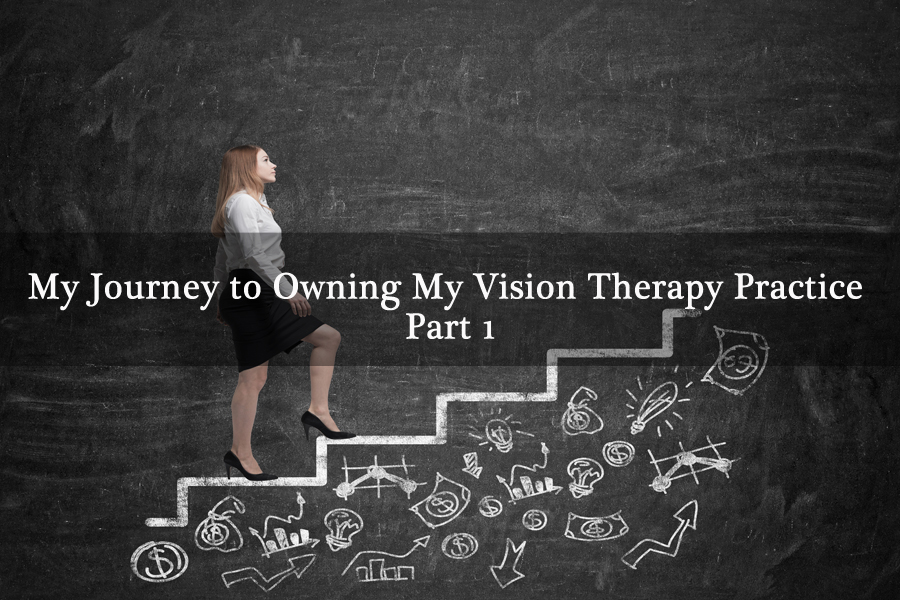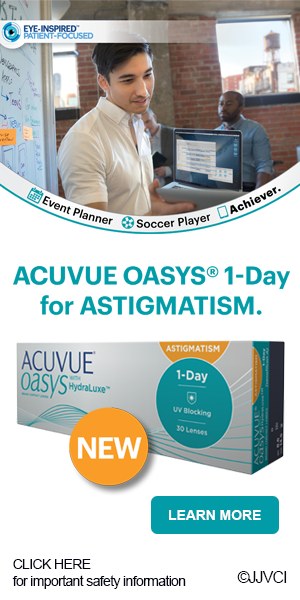This past summer was the last summer break of my academic life and I chose to make it one to remember. Among the things that I chose to do was to shadow optometrists in Northern Colorado where I grew up. I met Leanna Dudley O.D., F.C.O.V.D. this past May at the 2015 NORA Conference in Denver, Colorado. I found out that she owned an individual private practice in Denver which specialized in Vision Therapy Optometry only. I have had an interest in Vision Therapy as well as owning my own practice for some time so I expressed these interests to Dr. Dudley. She graciously invited to host me at her practice and I gladly accepted. I had the opportunity to shadow Dr. Dudley several times over the summer and had a chance to learn about her journey from optometry school to ultimately starting a private practice “cold” on her own. I interviewed Dr. Dudley about this journey and what I learned was truly inspirational.
Interview:
When did you become interested in behavioral optometry?
I was interested in optometry since I was seven years old but I first learned about behavioral optometry during my first year of optometry school at Pacific University College of Optometry. I had a behavioral optometry course where we learned about Traumatic Brain Injury and its effects on vision as well as its effects on a person’s overall health. This especially resonated with me because my mother had sustained six concussions by the time she was 20 years old. The cumulative effects of those concussions made many tasks difficult and overwhelming for my mom and at times she found it difficult to hold down a job and that really had a large impact on her self-esteem.
When I shared with her that her struggles were due to her concussions, she felt a huge weight lifted off her shoulders because she knew there was a reason why she struggled. I later got a chance to learn about how behavioral optometry focused on using a combination of lenses and exercises (known as Vision Therapy) to rehabilitate the visual systems of children who failed to properly develop critical visual skills at an early age as well as people like my mom who had developed those skills but later lost them as a result of brain injury. I then began working with children at the eyecare clinic on campus and saw for myself how big of an impact Vision Therapy had on patients’ lives. It was just such a positive field and it totally clicked for me.
What opportunities did you take advantage of as a student to explore behavioral optometry?
I had an opportunity to take a Learning Related Vision course as an elective during my third year of optometry school. During that course I learned about the psycho-educational testing that’s done by a multi disciplinary team in order to create an Individual Educational Program (IEP) for children who have difficulty meeting their potential in school. I found that course to be very fascinating. I also chose internal clinic rotations in Vision Therapy when I had the chance. Later, during my external rotations, I chose one Vision Therapy rotation and then got the opportunity to have a second rotation in Vision Therapy when one of my other rotation sites got cancelled at the last minute. Having that extra time and experience I think helped me a lot. The biggest step from there for me was choosing to do a residency.
Why did you choose to do a residency?
When I was doing my rotations I was usually assigned to administering therapy exercises that were prescribed by my preceptor. This was an important skill, but as a doctor you need to also know how to effectively evaluate your patient’s level of visual performance and then create a therapy program that targets the visual skills that they’re lacking in. I felt that I would benefit from more training in that aspect of Vision Therapy which is why I decided to research residency programs. I ultimately chose the Vision Therapy and Rehabilitation residency at SUNY College of Optometry in New York.
What about that specific residency appealed to you?
I liked the fact that we had access to fifteen faculty members which made it possible to become exposed to different teaching styles and approaches to therapy. I also appreciated that we were given an opportunity to spend time in other specialty clinics of our choosing as part of the residency. I chose to do a rotation in the contact lens clinic, ocular disease clinic as well as primary care pediatric optometry clinic. It was a great opportunity to reinforce my previous knowledge in those areas as well as pick up new clinical pearls.
How beneficial for you was the experience of doing a residency?
It was extremely valuable. The great thing about a residency is that it gives you an opportunity to work with a large number of patients in your area of specialty. The value of that really can’t be overstated. During my residency I learned how to effectively diagnose vision problems as well as how to program units of therapy to address them. I programmed and administered all of the therapy that my patients received which was a very beneficial experience. I emerged from my residency feeling confident about my ability to open my own practice and offer Vision Therapy to my patients.
Fayiz Mahgoub
Western University of Health Sciences College of Optometry





